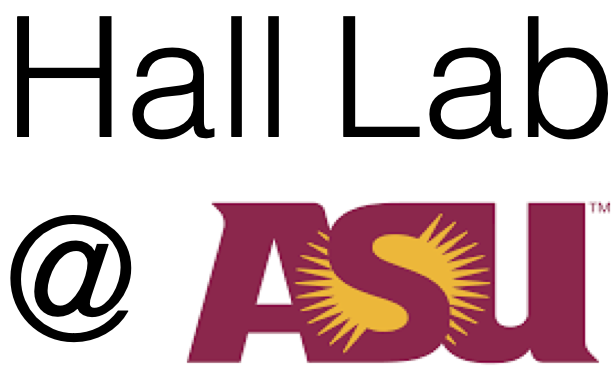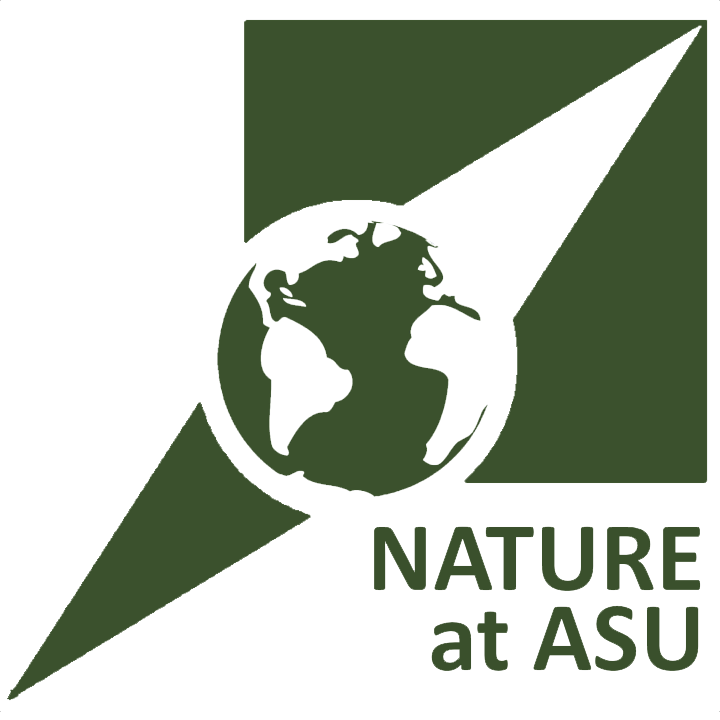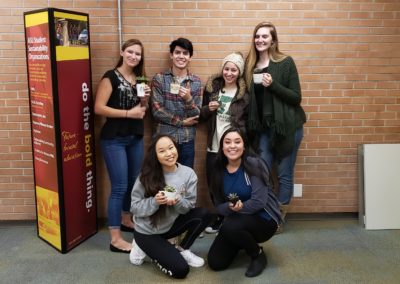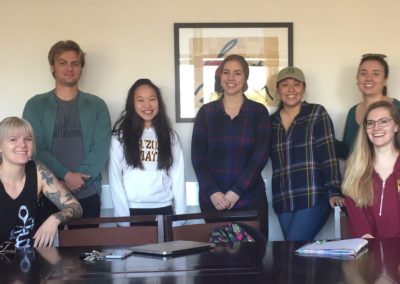When I first saw the opportunity to become a conservation mentor I thought: “What an amazing chance to learn new things and guide others towards a career in conservation biology!” Being a mentor has taught me more in three semesters than I learned in my first two years of higher education. I now understand the need for Conservation Biology and Ecology students. It has taught me how to step out of my comfort zone, reach for opportunities, find resources, and receive support from peers and faculty.
As a mentor I have had the pleasure of assisting others in receiving internships and research positions. In addition, I have aided undergraduates in assessing which direction to take that is best suited for them.
Nature Guides was launched in 2017 as the the first peer mentoring program in Conservation Biology & Ecology at ASU. Our team of peer mentors connects with freshman, sophomores, and transfer students to connect them to the Nature at ASU community and assist them with course choices, adapting to life at ASU, and a range of professional development opportunities.
🌿 Are you interested in becoming a Nature Guide peer mentor? 🌿
Are you interested in helping ASU freshman, sophomores, and transfer studentslearn about classes and environmental field work opportunities in Conservation Biology & Ecology?
Nature at ASU is searching for exceptional students who are majoring in Conservation Biology and Ecology to earn 1 unit of course credit for the full academic year for mentoring fellow peers! The Nature Guides program mentors and provides resources for freshmen, sophomores and transfer students who are enrolled in Conservation Biology and Ecology major on the Tempe campus. The commitment for being a Nature Guide is about 3-4 hours a week on average, which includes communicating with mentees and attending mandatory meetings/socials. Encourage your peers to be a part of the environmental movement by helping them navigate through college life as a Conservation Biology and Ecology student!
Minimum Qualifications
- Majoring in Conservation Biology and Ecology
- Currently a Sophomore, Junior or Senior
- Minimum GPA of 2.75
- Ability to attend required meetings (Monthly meetings for Nature Guides, bi-monthly meetings for Nature at ASU and meetings with mentees throughout the semester)
- Has completed or is currently involved in biology-related jobs or activities such as internships, lab experience, field work, study abroad, volunteer work, etc.
- Is eager and passionate about student success and mentoring underclassmen
Desired Qualifications
- Previous mentoring experience
- Has taken upper division courses in major map (e.g. BIO 322, BIO 410, BIO 324)
- Outgoing and friendly personality
- Problem solving skills
- Willing to learn and contribute to bettering the program
- We especially welcome applications from students who bring diverse life experiences and cultural perspectives, as well as those who would contribute to the equitable gender representation of our team
TO APPLY: Please fill out this Google Form:
If you have any questions about your eligibility or the program in general, please do not hesitate to contact Allison Hayes (arhayes2@asu.edu). We are excited to hear from you, and hope you will help us to build and empower our community of Conservation Biology & Ecology undergraduate students!
Nature Guides was launched in 2017 as the the first peer mentoring program in Conservation Biology & Ecology at ASU. Our team of peer mentors connects with freshman, sophomores, and transfer students to connect them to the Nature at ASU community and assist them with course choices, adapting to life at ASU, and a range of professional development opportunities.
🌿 Are you interested in becoming a Nature Guide peer mentor? 🌿
Are you interested in helping ASU freshman, sophomores, and transfer studentslearn about classes and environmental field work opportunities in Conservation Biology & Ecology?
Nature at ASU is searching for exceptional students who are majoring in Conservation Biology and Ecology to earn 1 unit of course credit for the full academic year for mentoring fellow peers! The Nature Guides program mentors and provides resources for freshmen, sophomores and transfer students who are enrolled in Conservation Biology and Ecology major on the Tempe campus. The commitment for being a Nature Guide is about 3-4 hours a week on average, which includes communicating with mentees and attending mandatory meetings/socials. Encourage your peers to be a part of the environmental movement by helping them navigate through college life as a Conservation Biology and Ecology student!
Minimum Qualifications
- Majoring in Conservation Biology and Ecology
- Currently a Sophomore, Junior or Senior
- Minimum GPA of 2.75
- Ability to attend required meetings (Monthly meetings for Nature Guides, bi-monthly meetings for Nature at ASU and meetings with mentees throughout the semester)
- Has completed or is currently involved in biology-related jobs or activities such as internships, lab experience, field work, study abroad, volunteer work, etc.
- Is eager and passionate about student success and mentoring underclassmen
Desired Qualifications
- Previous mentoring experience
- Has taken upper division courses in major map (e.g. BIO 322, BIO 410, BIO 324)
- Outgoing and friendly personality
- Problem solving skills
- Willing to learn and contribute to bettering the program
- We especially welcome applications from students who bring diverse life experiences and cultural perspectives, as well as those who would contribute to the equitable gender representation of our team
TO APPLY: Please fill out this Google Form:
If you have any questions about your eligibility or the program in general, please do not hesitate to contact Allison Hayes (arhayes2@asu.edu). We are excited to hear from you, and hope you will help us to build and empower our community of Conservation Biology & Ecology undergraduate students!
When I first saw the opportunity to become a conservation mentor I thought: “What an amazing chance to learn new things and guide others towards a career in conservation biology!” Being a mentor has taught me more in three semesters than I learned in my first two years of higher education. I now understand the need for Conservation Biology and Ecology students. It has taught me how to step out of my comfort zone, reach for opportunities, find resources, and receive support from peers and faculty.
As a mentor I have had the pleasure of assisting others in receiving internships and research positions. In addition, I have aided undergraduates in assessing which direction to take that is best suited for them.



